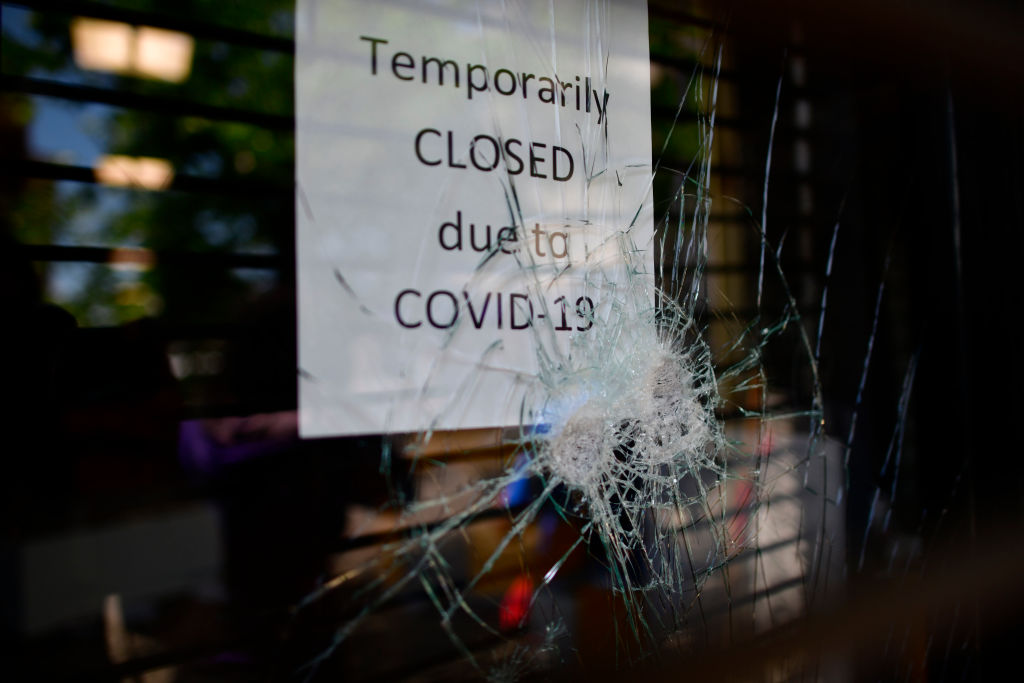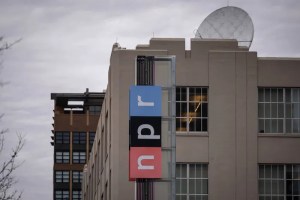Remember when peaceful protesters of the economic lockdown were smeared for apparently putting lives at risk by utilizing their First Amendment rights? ‘Many protesters have ignored public health edicts, exposed themselves and others to COVID-19 and put our nation’s hodgepodge efforts to mitigate the pandemic at risk,’ the USA Today editorial board wrote. George Stephanopoulos, an ABC journalist and former senior adviser to President Bill Clinton, appeared to suggest during an April interview with Facebook CEO Mark Zuckerberg that the platform should censor posts promoting protests against the lockdown.‘Facebook also holds its users accountable by continuing to monitor and flag posts for harmful misinformation about the disease,’ he said. ‘How do you deal with the fact that Facebook is now being used to organize a lot of these protests that defy social distancing… Does that qualify as harmful information?’Where is the outrage now violent protesters are looting and burning America’s urban centers every night? It’s almost as if COVID-19 magically disappeared. As far as we know, the virus is still here. Even as healthcare workers cheer on protesters, local health departments across the country fear these massive gatherings could lead to a sudden outbreak of the coronavirus. In Minnesota, the state where a police officer killed George Floyd, the local health department is developing plans to provide testing for protesters in Minneapolis and St Paul, in anticipation of a potential outbreak. ‘We do have heightened concern that there is the potential for an increase in COVID-19 cases as a result of the large, closely packed crowds over the last few days in the Twin Cities,’ a Minnesota Department of Health spokesperson told The Spectator, adding that a potential outbreak likely wouldn’t be evident until a week. ‘However, the fact that many people were wearing masks and the protests were outside could mitigate some of that potential for spread. There are so many variables, we just don’t know exactly what’s going to happen.’After large numbers of demonstrators took to the streets of Atlanta, Georgia’s health department expressed similar worries that the protests could spark a new outbreak of COVID-19 cases, even among young people, who are less vulnerable to the virus and have been a leading force behind the protests. ‘The Georgia Department of Public Health is concerned about any large gatherings that do not follow social distancing guidelines or usage of face coverings or masks,’ a spokesperson told The Spectator. ‘While we know that vulnerable populations are at greater risk of COVID-19 infections, we also know that seemingly young, healthy individuals, even children, can suffer extremely serious, even fatal effects of COVID-19.’Many of the major cities that drew large protests had just begun the reopening of their economies — such as Philadelphia, DC and Baltimore. Now they may have to reconsider, depending on the severity of any resulting outbreak. Philadelphia announced the enactment of its ‘Safer at Home’ reopening plan Friday, one day after violent protests broke out in Minnesota and hours before protesters hit the streets in its own city throughout the weekend. ‘From a health perspective, we can’t say what effect current events will have on the virus’s spread, but continue to monitor the metrics that were announced last week,’ a Philadelphia Department of Public Health spokesperson told The Spectator.Though local governments across the country are expressing safety concerns, the media is focusing its coverage on Donald Trump’s ‘Church photo-op’ in Lafayette Park or the looting and burning of businesses. Perhaps this is understandable: tear-gas and smoldering cities make for more visceral images than an invisible pandemic. But there’s now little to no attention given to the impact of the protests on the COVID-19 outbreak they cared oh so much about just a week ago.
[special_offer]
With extensive protests breaking out after months of hysteria over the need for a lockdown to counter the spread of the coronavirus, journalists are in a lose-lose situation. Either there will be a surge in COVID-19 cases, or many journalists and pundits will be provenlargely wrong in their push for a continuation of the economic lockdown. Critics of the lockdown have long advocated for vulnerable Americans to stay home, while younger, healthier individuals could return to work. The nationwide protests, as devastating as they are, could potentially serve as a rough model for the impact of further reopening of the country.Racial injustice, abuse of state power and violence on the streets are surely worth discussing — but let’s not prematurely sweep COVID-19 under the rug. It could be only a matter of time before the impact of the coronavirus is the lead story once again…


















